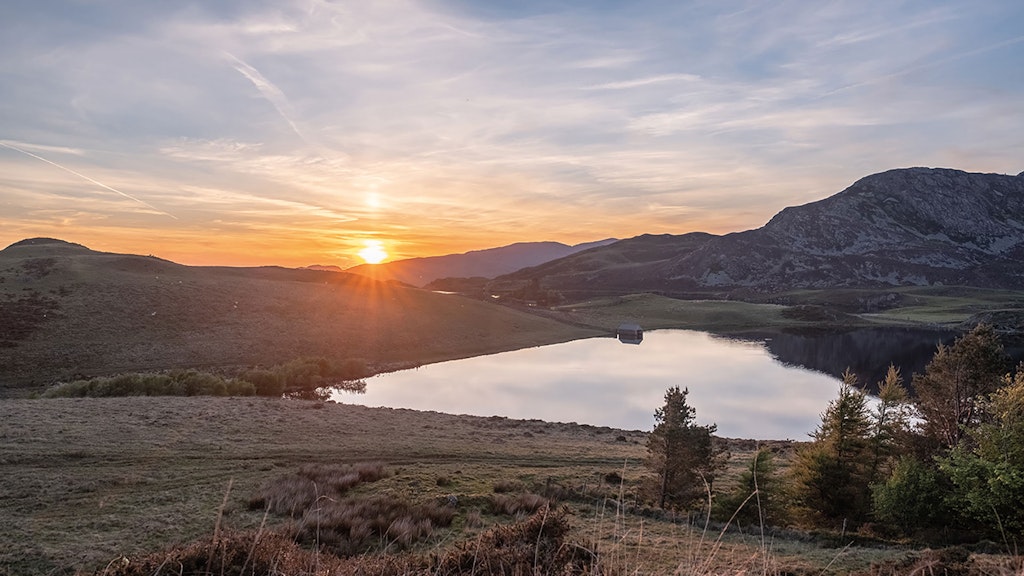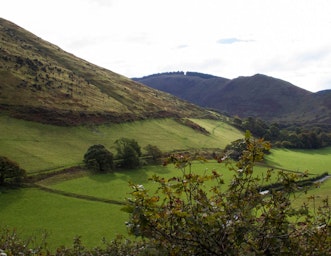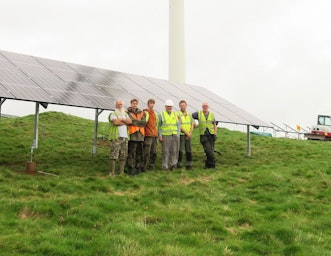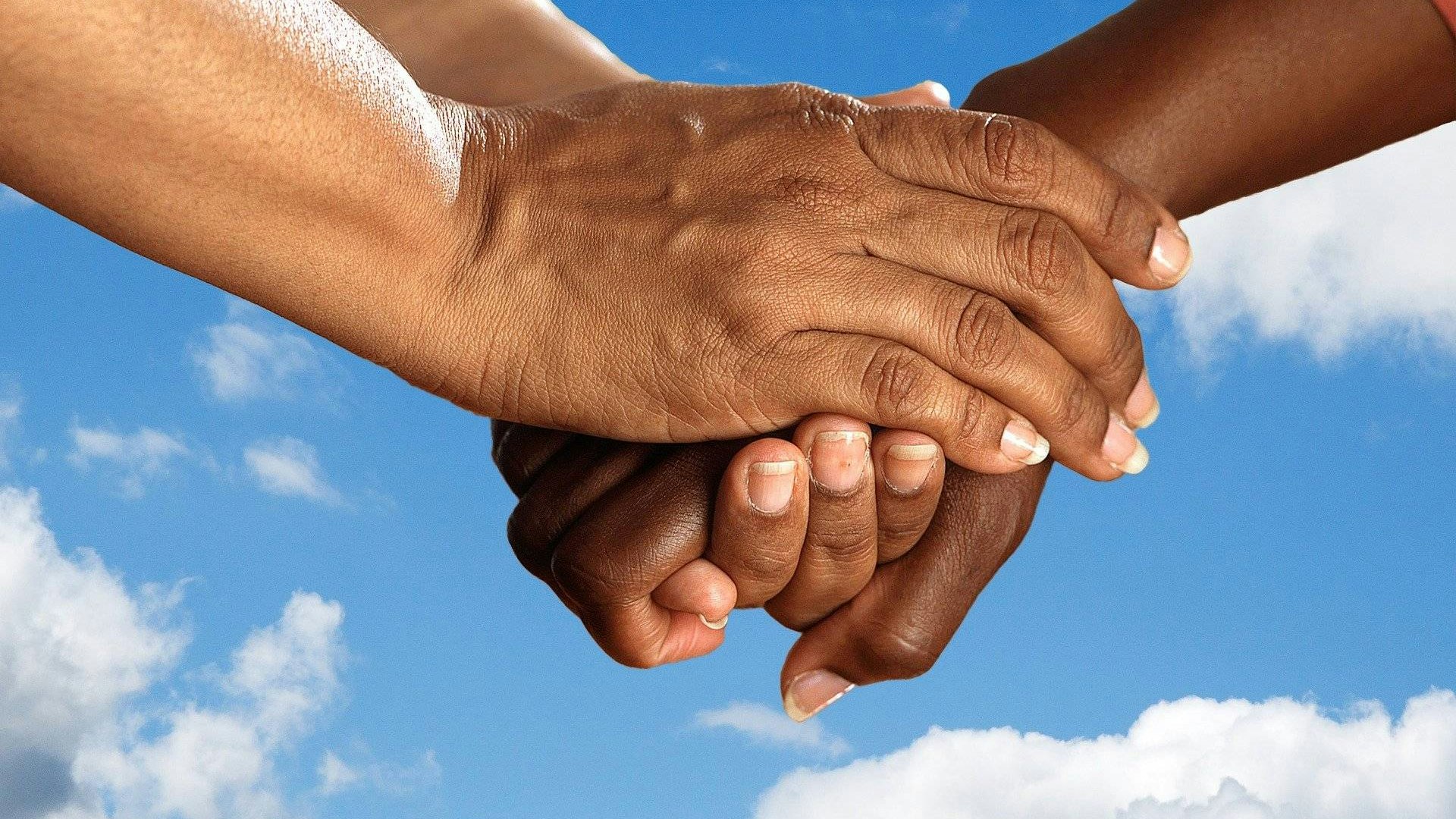
Coping with the climate crisis – Guest blog
January 7, 2021Home » Coping with the climate crisis – Guest blog
As the climate crisis deepens, more and more people report feelings of fear, anxiety and depression. Psychotherapist Ro Randall offers some ideas on how to cope.
The feelings which arrive when you let yourself think about the climate crisis properly can be overwhelming. People describe feeling shock, feeling disorientated, being pole-axed by fear and knocked sideways by their own sense of powerlessness. Sometimes there is a panicky sense of disbelief – ‘This can’t be true, surely it’s not true.’ Often people are angry. Sometimes there are terrible feelings of guilt and shame, particularly if you are someone who has ignored the facts for a long time.
Experiences like these are increasingly being referred to as ‘climate anxiety’. I prefer the term ‘climate distress’, partly because it doesn’t have the overtones of a diagnosis, and partly because people are usually describing a whole range of painful feelings, many of which are not anxiety.
We don’t know how many people in the UK suffer from climate distress but research from Finland provides some pointers. A study there found that 25% of people reported experiencing climate anxiety, a figure that rose to 33% amongst younger people, aged 15-30.
It’s normal to be upset
It’s important to recognise that these distressing feelings are normal. They are the feelings we all have when we receive a piece of very bad news, something which, like the death of someone close to us, is life-changing. As they face the climate crisis, people often describe finding themselves questioning their values, their plans for the future, and their sense of identity. Some find themselves in difficult conflicts with family and friends. Some feel trapped in a life which they can see no way of changing while others leap into manic action as a way of blocking out the painful feelings.

What helps?
It’s important not to deny or belittle this kind of pain. Listening to it and giving it space is usually the best way to move past its intensity and live with its beat more creatively. I often use an adaptation of William Worden’s work on grief and loss as a framework for helping people move through these painful feelings. This suggests there are four tasks which you can either face into or turn away from:
- Accepting the reality of the crisis. This usually happens intellectually first, with the emotions catching up as you allow yourself to reflect on what the crisis means for you and what it calls on you to do.
- Working through the painful emotions, mourning what is lost. The losses may be connected to the sense of a vanishing natural world but just as important are the losses of the life you may have expected to lead, whether this is a retirement filled with foreign holidays, a career in a high-carbon industry or just a life without fear of floods, storms, droughts and upheaval.
- Adjusting to the new environment, reshaping a sense of identity, finding support and solidarity with others. Reflecting on your values, reconsidering the way you live and what matters to you is usually important.
- Choosing a path of action, reinvesting emotional energy. Becoming able to use the energy of your anger is often important here.
In all of these tasks finding people to talk to who will listen with curiosity, care and respect is crucial. People need to talk about the big issues that the climate crisis throws up for them personally. Should I have children? Is it ok to stay in my current job? What do I tell the kids? How do I convince my husband/wife/parents/partner? If you’re trying to help someone don’t offer false reassurance but listen and try to understand what they are experiencing. Walk beside them.
Gradually people become able to move away from a preoccupation with the awfulness of what may happen and find a way to live courageously and well in the difficult present. It slowly becomes possible to see a path to living differently. The grief and painful feelings never disappear completely – these tasks aren’t linear – but they can ease and leave you free to act effectively.
The role of action
People often prescribe action as the solution to feelings of climate distress. Action is very important: it helps give you back some sense of control and often stops people feeling completely overwhelmed. In order to act effectively however, people also need to stay with the dark feelings long enough to explore and understand them. For some people moving prematurely into action means they adopt only those minimal actions that will fit around their existing lifestyle while anxiety hovers perpetually in the background, paralysing and depressing them. For others, throwing themselves into all-consuming action is a way of blocking out the intolerable feelings and these inevitably return in the form of burnout and exhaustion.
Through my research and through my work in the community with people who are struggling with their feelings about climate change, I’ve identified six things which seem to make a difference psychologically as you move towards action:
- Work with others. This shares the burden, provides support and allows for shared experiences of success and failure. There are many groups who will welcome your involvement.
- Bring your life into alignment with what you now know. Reducing your impact as far as you can helps give you an immediate sense of control and restores a sense of integrity to your life.
- Look for balance. Try to balance actions which are about stopping something – protesting about airport expansion, for example – with actions that are about creating something – making your back garden wildlife friendly, experimenting with vegan cookery or volunteering with an outdoor project.
- Let go of the climate news. Don’t torture yourself by revisiting it every day. The important thing is integrating the knowledge into your life, not punishing yourself by dwelling on it.
- Make time for the ordinary joys and pleasures of life: spending time with family and friends, sharing a meal or a drink, pursuing the pastimes that have always given meaning to your life.
- Keep talking, listening and giving space to your feelings and those of others.

Professional help
For some people, the feelings induced by the climate crisis don’t go away and can feel unmanageable. Young people whose families are unsympathetic or who are unable to take part in any form of action are likely to be more susceptible to continued experiences of distress. Older people who feel locked into high carbon lifestyles and are unused to political or community action may struggle to see what they can do and remain trapped in feelings of distress. If you, or someone you know, is suffering in ways that feel beyond your help, seeing a psychotherapist or counsellor may be useful. The Climate Psychology Alliance offers three free sessions of psychological support. Private therapists can be found by looking at the Counselling Directory site and your GP may be able to refer you for counselling through the NHS.
About the author
Ro is a psychotherapist. She has been involved in climate issues for many years, is the co-founder of the Carbon Conversations project, a founder member of the Climate Psychology Alliance and is currently active with Cambridge Climate Therapists. Her videos on Coping with the Climate Crisis can be found at Resources – Cambridge Climate Therapists
Want to learn more?
Join Ro Randall on 17 February discussing this topic further as part of our free webinar series. Book your place now – Free webinar – Coping with the climate crisis.
References:
Hoggett, Paul and Randall, Rosemary (2016) Sustainable Activism: Managing Hope and Despair in Social Movements. Open Democracy. Sustainable activism: managing hope and despair in social movements | openDemocracy
Pikhala, Panu (2019) Climate Anxiety. MIELI. mieli_climate_anxiety_30_10_2019.pdf
Worden William (1983) Grief Counselling and Grief Therapy. London: Routledge.
- Zero Carbon Britain
- Climate Change
- News Feed
Related Topics
Related Pages
Related news



CAT Conversations: Sandy Stevens, CAT graduate
17th April 2025
More solar energy for CAT
4th April 2025
Free Webinar - Coping with the climate crisis
Email sign up
Keep up to date with all the latest activities, events and online resources by signing up to our emails and following us on social media. And if you'd like to get involved and support our work, we'd love to welcome you as a CAT member.
